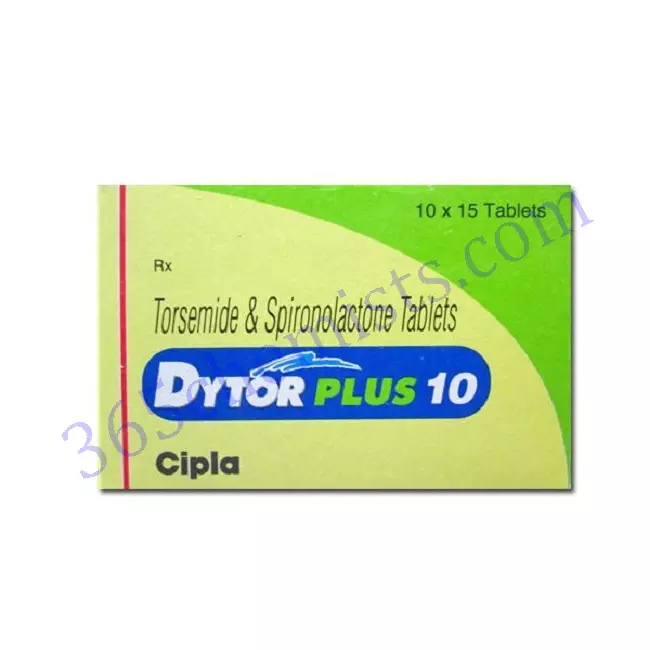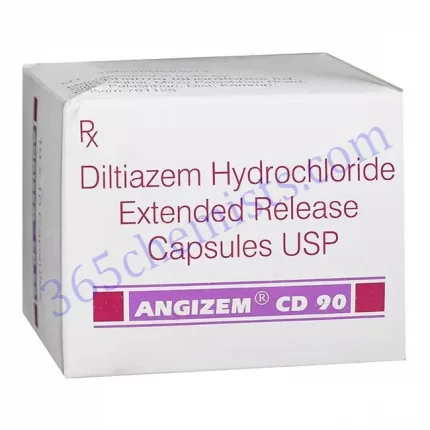Dytor Plus 10 Tablet: Managing Fluid Retention and Hypertension
Spironolactone (50 mg) and Torasemide are the two active components that are included in each Dytor Plus 10 Tablet. This drug is a combination product. People who need thorough management of their fluid retention and hypertension frequently receive a prescription for this drug. Spironolactone is an aldosterone antagonist, while Torasemide is a loop diuretic. Both of these medications are used to treat hypertension. They have an additive impact on one another, which helps maintain a healthy fluid balance and maintain normal blood pressure. In this article, we will discuss the benefits, uses, recommended dosage, potential adverse effects, and safety measures related with the usage of Dytor Plus 10 Tablet.
Understanding Spironolactone and Torasemide
Spironolactone exerts its effects by suppressing the actions of aldosterone, a hormone that is critically important to maintaining a healthy balance of sodium and water in the body. Spironolactone works to reduce fluid retention and edoema (swelling) by inhibiting the action of the hormone aldosterone. This frees up the kidneys to excrete more salt and water, which in turn leads to less swelling. Patients suffering from illnesses such as congestive heart failure, liver cirrhosis, or kidney disease can benefit from this in terms of keeping a good fluid balance in their bodies.
Torasemide, on the other hand, belongs to a class of medications known as loop diuretics. These medications function by preventing the kidneys from reabsorbing salt and chloride. This mechanism stimulates an increase in the production of urine, which ultimately results in the removal of surplus fluid from the body. Torasemide helps to lower blood pressure by lowering the volume of blood that is circulating through the body. This is an essential benefit for persons who suffer from hypertension.
Uses of Dytor Plus 10 Tablet
Edoema caused by disorders such as congestive heart failure, liver cirrhosis, or renal disease are among the most common reasons that a doctor would recommend using a Dytor Plus 10 Tablet as a kind of treatment. Individuals whose hypertension is not sufficiently controlled by a single antihypertensive medication may benefit from this treatment option as well because it is an effective alternative. The swelling, shortness of breath, and weariness are just a few of the symptoms that can be alleviated with the help of Dytor Plus 10 Tablet. It does this by encouraging diuresis and removing extra fluid. In addition to this, it helps lower blood pressure, which is really important when it comes to warding off cardiovascular issues.
Dosage and Administration
A healthcare practitioner should evaluate the patient’s condition, medical history, and reaction to treatment in order to establish the appropriate dosage of Dytor Plus 10 Tablet that should be administered. Oral administration is recommended, and it can be done with or without food. It is essential, in order to achieve the best possible treatment results, to completely adhere to the dosage and administration schedule that was given.
It is important to take the tablet as directed, without crushing or chewing it. In the event that a dose is forgotten, it is recommended to take it as soon as it is remembered, unless the time for the next regularly scheduled dose is getting close. It is not a good idea to double the dose in order to make up for the one that was skipped.
Side Effects and Precautions
Although the Dytor Plus 10 Tablet is generally well tolerated, just like any other medication, it has the potential to cause adverse effects in certain people. It’s possible that you can experience increased urination, dizziness, a headache, and muscular cramps if you take this medication. In most cases, these effects are not severe and disappear on their own.
However, it is essential to be aware of the possibility of major adverse effects, such as severe allergic reactions, electrolyte imbalances, and changes in the function of the kidneys. It is imperative that quick medical assistance be sought in the event that any symptoms, odd or otherwise, manifest themselves.
It is imperative to inform the healthcare practitioner about any preexisting medical conditions or medications that are being taken prior to beginning treatment with Dytor Plus 10 Tablet because these factors can cause interactions with the medication. When taking Dytor Plus 10 Tablet, patients who have kidney difficulties, liver illness, diabetes, or electrolyte abnormalities need to have careful monitoring. Before beginning treatment with this medicine, women who are pregnant or breastfeeding should discuss their options with their primary care physician.
Related Product
Dytor 5 mg Tablet
Dytor 10 mg Tablet
Dytor 20 mg Tablet
Dytor 40 mg Tablet
Dytor 100 mg Tablet
Dytor Injection
Dytor Plus LS Tablet
Dytor Plus 5 Tablet
Dytor Plus 10 Tablet
Dytor Plus 20 Tablet
Dytor E 10 Tablets
Interaction with Other Medications
There is a possibility of an interaction between Dytor Plus 10 Tablet and other medications, such as potassium supplements, nonsteroidal anti-inflammatory drugs (NSAIDs), antihypertensives, and possibly even other diuretics. Because of these interactions, the medications might not work as well as they should, and there is a risk of developing problems. Before beginning treatment with Dytor Plus 10 Tablet, it is necessary to inform your healthcare practitioner about any and all medications you are currently taking. This includes both prescription and over-the-counter medications, as well as herbal supplements.
Conclusion
Fluid retention and hypertension can be effectively managed with the pharmaceutical combination found in the Dytor Plus 10 Tablet. This medication contains both Spironolactone and Torasemide. The comprehensive treatment of edoema and hypertension that is provided by Dytor Plus 10 Tablet is achieved by a combination of the aldosterone-blocking and diuretic qualities of the medication. To ensure the safe and effective use of this drug, it is critical to adhere to the dose instructions provided, be aware of any potential adverse effects, and communicate with your healthcare practitioner about any preexisting medical problems or medications you are currently taking. Individuals on Dytor Plus 10 Tablet can achieve better fluid balance and improved blood pressure control with rigorous following to the medication’s instructions and regular monitoring of their progress.












